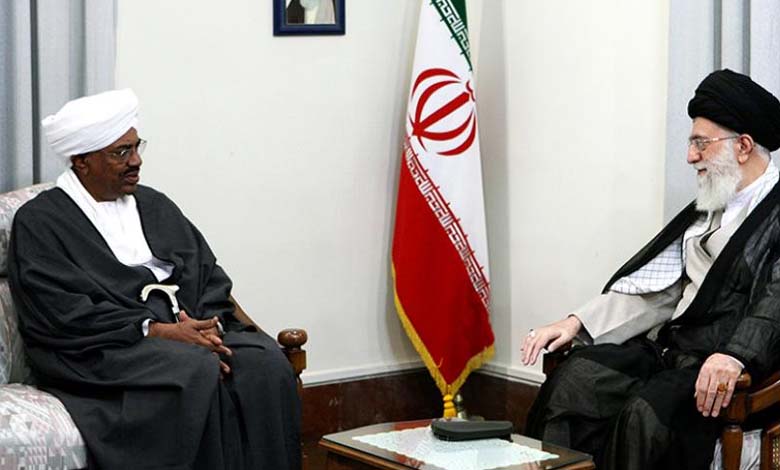Reasons Behind the Sudan-Iran Rapprochement and the Connection to the Muslim Brotherhood

Experts suggest that the Sudanese army‘s desire to obtain weapons to decisively end its battle with the Rapid Support Forces, alongside Iran’s ambition to secure a foothold on the Red Sea coast, are the primary reasons for the restoration of diplomatic relations between Tehran and Khartoum.
The leader of the (National Umma Party), Aroua Al-Sadiq, revealed that the announcement by the de facto government of the restoration of relations with Iran aligns with the aspirations of the dissolved Muslim Brotherhood organization and its defunct regime, according to the (Al-Rakouba) website.
He added that “the Sudanese Foreign Ministry’s statement that the resumption of diplomatic relations aims to serve the interests of both parties means we are witnessing a new chapter of deceptive Islamist propaganda.”
Al-Sadiq explained that the Iranian side still recalls the strategic security and military facilities it established in Khartoum, the strategic stockpile of weapons and ammunition it manufactured and stored in the country, and the substantial revenues from the trade of Iranian gas and oil to Sudan and Africa.
He added that “Iran could be an outlet for the army to obtain weapons, military equipment, and fuel, as it suffers from economic difficulties and weaknesses in its military infrastructure. Iran could provide the necessary support, which is what the war generals and members of the Muslim Brotherhood organization at the Foreign Ministry are looking for.”
Political analyst Salah Jalal believes that “the resumption of Sudanese-Iranian relations, in addition to the fluid and deteriorating security situation in the Red Sea, could place Port Sudan at the intersection of interests with all Western countries, the Gulf, China, India, and Egypt, and could expose the country to potential reactions.”
He stated that “the resumption of relations at this time could drag Port Sudan back into the sphere of international confrontation, but the leadership of the Sudanese army and radical Islamists are compelled to accept this compromise to continue the war with arms support.”
He pointed out that the Sudanese army, the Islamic movement, and supporters of the former regime are compelled to seek strategic weapons to change the balance of power in the armed conflict with the Rapid Support Forces.
For his part, political analyst Alaa Al-Din Babkr believes that the Muslim Brotherhood, which backs the Sudanese army, shares a terrorist ideology with Iran, prompting them to restore relations with Tehran.
Babkr stated in a press statement that Iran does not support development projects or training and education, but rather provides weapons. He added that the Sudanese army currently has an urgent need for weapons to end the battle with the Rapid Support Forces.
He pointed out that the regime of former President Omar Al-Bashir fought in Darfur and South Sudan with Iranian weapons, which the Sudanese army currently desires.
-
Sudan: Arena of Iranian and Brotherhood Influence
-
From Iraq and Lebanon to Yemen and then Sudan… Al-Burhan Tilts Iran Militias in Africa
Last Sunday, the head of the Sudanese army, General Abdel Fattah al-Burhan, received the credentials of Hassan Shah, ambassador and plenipotentiary of Iran in Sudan, and bade farewell to Ambassador Abdel Aziz Hassan Saleh, who took up his duties as Sudan’s ambassador to Iran, after more than eight years of complete rupture between the two countries.












